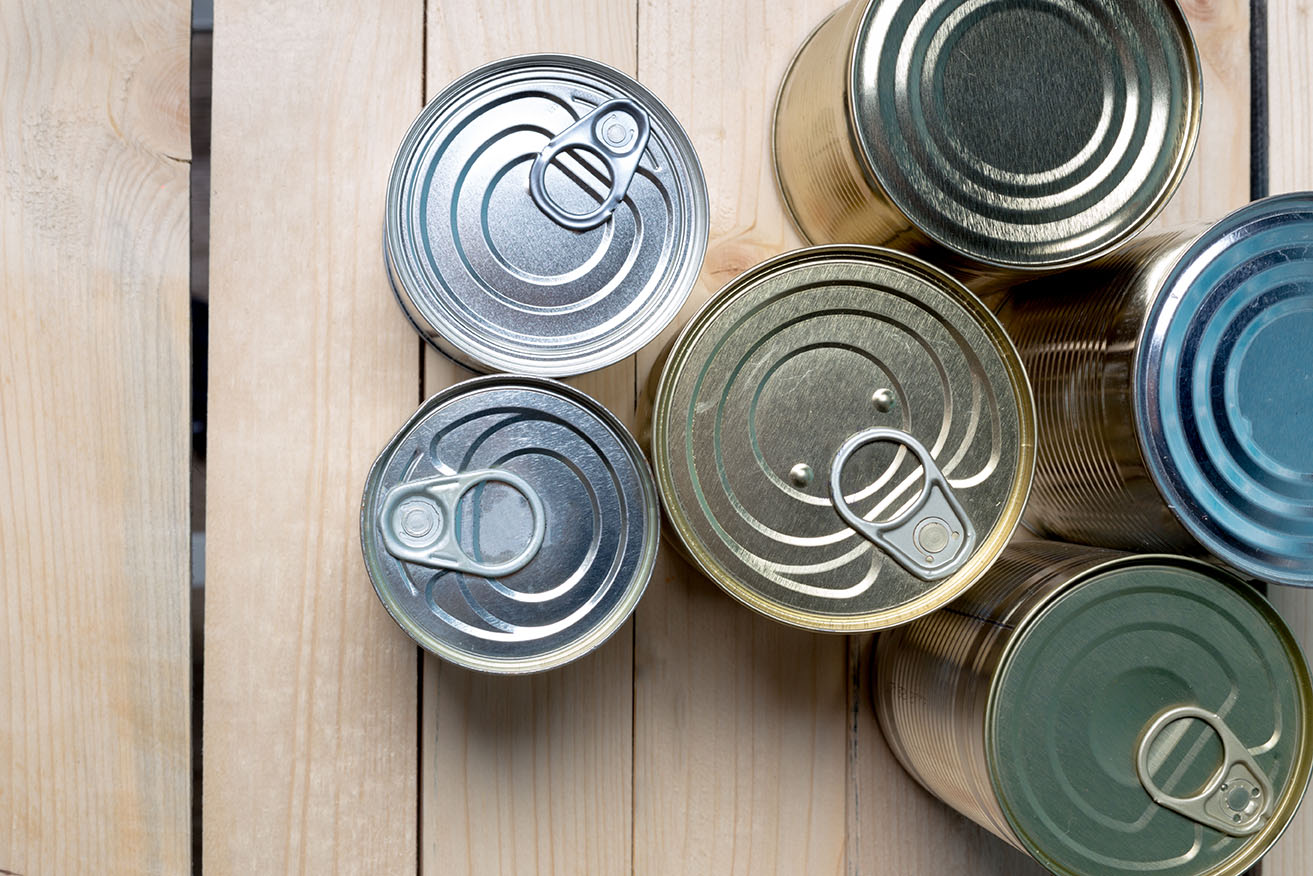
canned
Definition
Canned means that something is stored in a can.
Cans are made of metal and they have a lid that can be opened and closed.
Canning is a method of food preservation that involves heating food to a high temperature and then sealing it in a can. The high temperature kills any bacteria or other microorganisms that could spoil the food. The sealed can prevents any new bacteria or microorganisms from getting into the food.
Canned food is often used because it is a convenient and shelf-stable way to store food.
Canned food can be stored for years without spoiling.
How can the word be used?
The canned pears were covered in syrup.

Different forms of the word
Adjective:
Canned: used to describe something that is stored in a can.
Canned: used to describe something that is pre-recorded.
Verb:
Can: to store something in a can.
Can: to record something in advance.
Etymology
Food: The word "canned" comes from the word "can", which is a container made of metal. The first canned foods were invented in the early 19th century, and the word "canned" was used to describe these foods because they were stored in cans.
Question
Why are food canned?
AQA Science Exam Question and Answer
Question:
Explain the term "canned" in the context of food preservation, and describe one advantage of using canned foods.
Answer:
In the context of food preservation, "canned" refers to the process of sealing and storing food in airtight containers, usually metal cans, to prevent spoilage and increase shelf life.
Advantages of Using Canned Foods:
One advantage of using canned foods is their extended shelf life. The airtight sealing process employed in canning creates a barrier that prevents the entry of air and microorganisms, reducing the risk of food spoilage and microbial contamination. As a result, canned foods can be stored for an extended period, maintaining their nutritional value and flavour. This benefit makes canned foods a convenient and reliable option, especially in situations where fresh food availability is limited, during emergencies, or for long-term food storage.